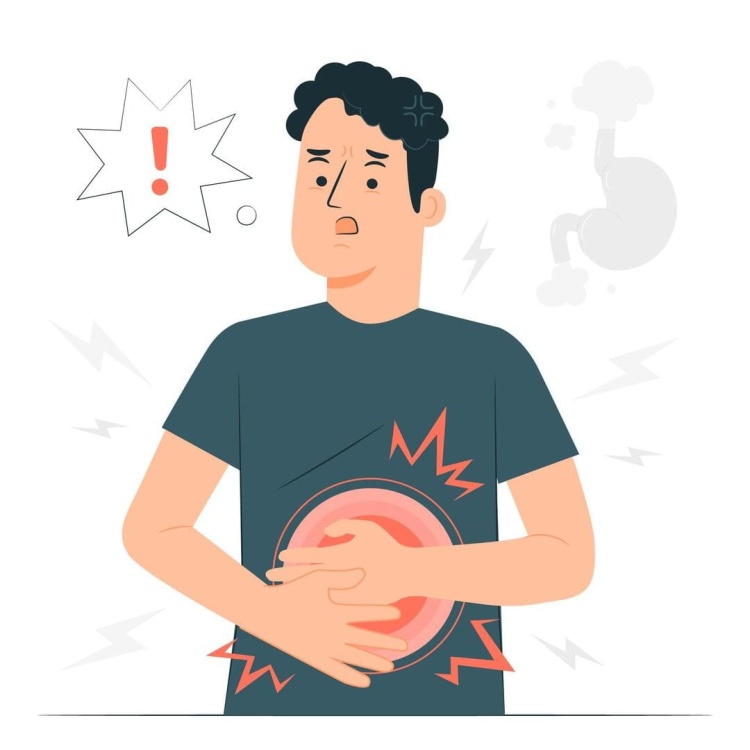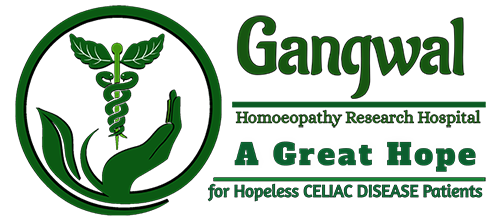
Ulcerative Colitis
Ulcerative colitis (UC) is a chronic inflammatory bowel disease (IBD) that primarily affects the colon (large intestine) and rectum. It causes inflammation and ulcers in the lining of the colon, leading to various gastrointestinal symptoms and potential complications.
Here are some key points to understand about ulcerative colitis:
Symptoms: The symptoms of ulcerative colitis can vary in type and severity. Common symptoms include abdominal pain, persistent diarrhoea (often containing blood or mucus), rectal bleeding, urgency to have bowel movements, a feeling of incomplete bowel emptying, weight loss, fatigue, and decreased appetite. Some individuals may also experience extraintestinal symptoms, such as joint pain, skin rashes, or eye inflammation.

Disease progression and types: Ulcerative colitis typically follows a relapsing and remitting course, with periods of flare-ups and periods of remission.
The disease can affect different parts of the colon, leading to various classifications:
- Ulcerative proctitis: Inflammation limited to the rectum.
- Proctosigmoiditis: Inflammation in the rectum and lower part of the colon.
- Left-sided colitis: Inflammation that extends up to the splenic flexure (part of the colon on the left side).
- Pancolitis: Inflammation that involves the entire colon.
Causes: The exact cause of ulcerative colitis is not fully understood, but it is believed to result from a combination of genetic, environmental, and immune system factors. There may be an abnormal immune response in individuals with a genetic predisposition, triggered by environmental factors such as infections or dietary factors. However, the specific triggers and mechanisms are still being studied.
Diagnosis: Diagnosis of ulcerative colitis involves a combination of medical history, physical examination, laboratory tests, imaging (such as colonoscopy or sigmoidoscopy), and biopsy of the colon lining to evaluate the extent and severity of inflammation. It is crucial to rule out other conditions with similar symptoms, such as Crohn’s disease or infectious colitis.
Treatment: The goal of treatment for ulcerative colitis is to control inflammation, induce and maintain remission, and improve the quality of life for individuals.
Treatment approaches may include:
- Medications: Anti-inflammatory drugs (such as aminosalicylates), corticosteroids, immunomodulators, and biologic therapies (such as anti-TNF agents) can be prescribed to manage symptoms and reduce inflammation.
- Lifestyle modifications: A healthy diet, regular exercise, stress management, and adequate hydration can help manage symptoms and promote overall well-being.

- Surgical intervention: In severe cases or when medication fails to provide relief, surgery may be necessary. Surgery can involve removing the colon and rectum (proctocolectomy) and creating an ostomy or performing ileal pouch-anal anastomosis (IPAA) to create a new reservoir for waste elimination.
- Monitoring and management: Regular monitoring and follow-up with healthcare professionals, such as gastroenterologists, are crucial for ongoing management of ulcerative colitis. This includes monitoring disease activity, adjusting medications as needed, and addressing any complications or side effects of treatment.
- Support and self-care: Living with ulcerative colitis can have a significant impact on an individual’s daily life. Seeking support from healthcare professionals, joining support groups, or connecting with others who have the condition can be beneficial. Self-care practices, such as managing stress, maintaining a healthy lifestyle, and adhering to treatment plans, can help individuals better manage their condition.
Treatments
Ulcerative colitis (UC) is a chronic inflammatory bowel disease (IBD) that primarily affects the colon (large intestine) and rectum. The goal of UC treatment is to induce and maintain remission, control inflammation, and improve the quality of life for individuals with the condition…









